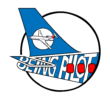Why Pilots Must Know Multiple Languages
Why Pilots Must Know Multiple Languages – From My Perspective
While English is the standard language for pilots, the global nature of the industry requires more than just basic English skills. From my perspective, there are several reasons why multilingualism is a valuable asset for pilots.
Enhancing Communication Across Borders
Pilots often fly internationally, interacting with air traffic controllers, airport staff, and passengers from various cultural and linguistic backgrounds. Even though aviation operates primarily in English, knowing additional languages like Arabic, French, or Turkish (which I’m learning through Duolingo) can make these interactions smoother and clearer. Many professionals I’ve spoken to emphasized how vital clear communication is during emergencies or specific technical discussions, especially when language barriers exist.
Connecting with Passengers
In commercial aviation, pilots are sometimes required to address passengers directly, particularly in emergency situations or during delays. Multilingual pilots are better equipped to communicate effectively with passengers who may not speak English, which helps create a sense of trust and comfort.
Cultural Understanding
Learning new languages isn’t just about speaking; it’s also about understanding the culture. Pilots often work with multinational crews, and professionals in the industry often told me how being familiar with a foreign language helps foster teamwork and better collaboration. This cultural awareness becomes a strength when operating in diverse environments.
Professional Opportunities
From my conversations with pilots, it’s clear that knowing multiple languages offers significant career advantages. Multilingual pilots are more competitive in the job market and are often preferred for international routes. With my vision of becoming a commercial pilot, I understand that being proficient in languages like Arabic could open up opportunities to fly for airlines in Islamic countries, aligning with my future goals.
Learning Additional Languages
From my experience and advice gathered from others, one of the best ways to learn new languages is by using language-learning apps like Duolingo (which I currently use for Arabic, French, and Turkish), Babbel, or Rosetta Stone. These apps provide an easy, structured way to learn languages at your own pace. Additionally, joining language groups, watching movies, or listening to podcasts in the target language can boost learning. For deeper immersion, some professionals recommended taking part in exchange programs or short-term stays in countries where the language is spoken. Consistency is key—spending a little time each day can make a big difference. These approaches not only help build proficiency but also prepare you for real-world conversations, which are crucial for a career in aviation.
In conclusion, after researching and discussing with aviation professionals, I firmly believe that learning multiple languages will not only help me as a pilot but will also enhance my career in commercial aviation. For any aspiring pilot, multilingualism is a skill that will undoubtedly add value throughout their journey.
